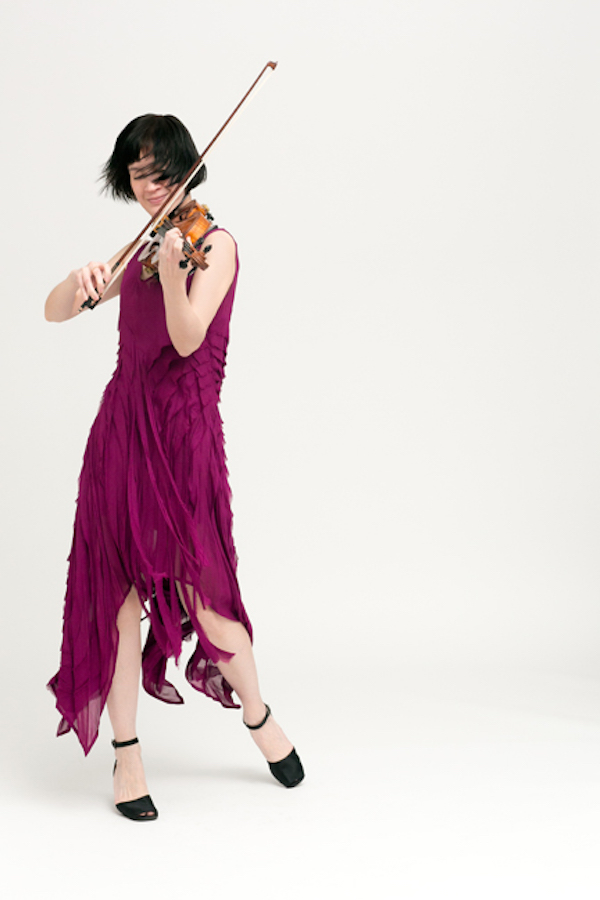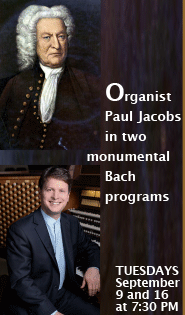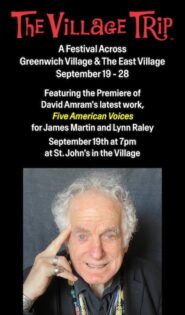Cuckson’s artistry marks a meaningful return to normalcy
Nothing brings back concert life in New York City more than being at a live concert. And nothing can seem more normal after the past year than having great music for an audience to lose themselves in for a brief interval.
Violinist Miranda Cuckson’s solo set Friday evening at Bargemusic was so inspiring that it had one thinking that normality was just around the corner—or even here for one hour. And this despite Bargemusic continuing their sensible policy of a limited, masked audience sitting apart from each other. (Although some atrocious audience behavior was a sign that the return of boorishness is a concomitant sign of normality.)
Cuckson played music from the late 20th and 21st centuries, all pieces she had been playing throughout her career. That ran contrary to the usual concert presentation, scheduled and prepared ahead of time as a kind of engineered ceremony. But Cuckson playing Xenakis, Michael Hersch, Georg Friedrich Haas, Aida Shirazi, and Carlos Simon was preferable. One hour of a greatly gifted artist playing music that is meaningful to her—what more could one want?
The violinist’s choices heightened the experiences of her previous performances and recordings. The unifying quality of the music was a hyper-expressiveness, each work a vehicle to get at malleable and complex ideas and feelings that escape clear definition. That’s what music can do, creating waves of sound that themselves keep changing as they spread. Cuckson is an expressive player, what she has to say always impresses even more than how she says it.
In this context, Xenakis’ Mikka S was a warm-up. Other violinists take a heavy metal approach to the slides and grinds of the piece, but Cuckson made it sound like a sonata, playing it with a broad range of dynamics and getting a delicious sonic agon out of pressing dissonant pitches against each other. The music established the idea that timbre could be as expressive and meaningful as melody and harmony, and each piece that followed contained that idea, at least in a small part.
Hersch’s the weather and landscape are on our side began the program’s through-line of music that was about some state of being or narrative idea, even in the abstract. The title, and those of the eleven brief sections that comprise the music, came from the letters of Bruno Schulz, a Polish Jew, writer and artist, who was murdered by the Gestapo in 1942. Hersch is an intensely expressive composer, and through Cuckson his phrases outlined written statements like “What is the hospital world like?”, “Waiting for news…”, and “I have seen beautiful, shocking, terrible sights.” The music pressed at the point where the words fell off into inarticulateness, and there were haunting sensations of bewilderment, regret, and resignation. Hersch’s piece is a small-scale masterpiece, performed with complete dedication by Cuckson.
Shirazi’s and Haas’ longing for a distant Memory and de terrae fini were a continuation of this expressive path and Cuckson seemed to be channeling a conversation between the composers about the best means to get at the most complex ideas. With refined sul tasto, Cuckson worked through the more abrading qualities of Shirazi’s piece and revealed a core dedicated to a delicate but weighty beauty. She took Haas’ quarter-tones and stretched them to an aching limit, making the music sound like it was trying desperately to escape an inevitable conclusion. This run of works had one thinking that Cuckson herself was working on leaving the last year behind.
If only that were so for the audience. Despite the mask policy, one patron went without in a flagrant antisocial gesture. More subtle annoyances were another patron bringing a small dog, and a third whose phone whistled loudly every time it received a text message, which was several times while Cuckson was playing.
Finishing the theme of escaping and overcoming, Cuckson played Simon’s excellent Between Worlds. The title comes from an exhibit at the Smithsonian American Art Museum of the work of Bill Traylor, an African-American artist born into slavery who died in 1949. Simon’s gorgeous writing packs grit and grace together into a melodic line that carries unmistakable determination, a drive to realize itself, no matter what. Cuckson kept a steady pace, but still burned through this music. The final cadence was the first bit of major key sound of the evening, and left one thinking better things are still to come.
Pianist Olga Vinokur plays transcriptions of Bach, Schubert, Gershwin, and others, 6 p.m. Saturday bargemusic.org


